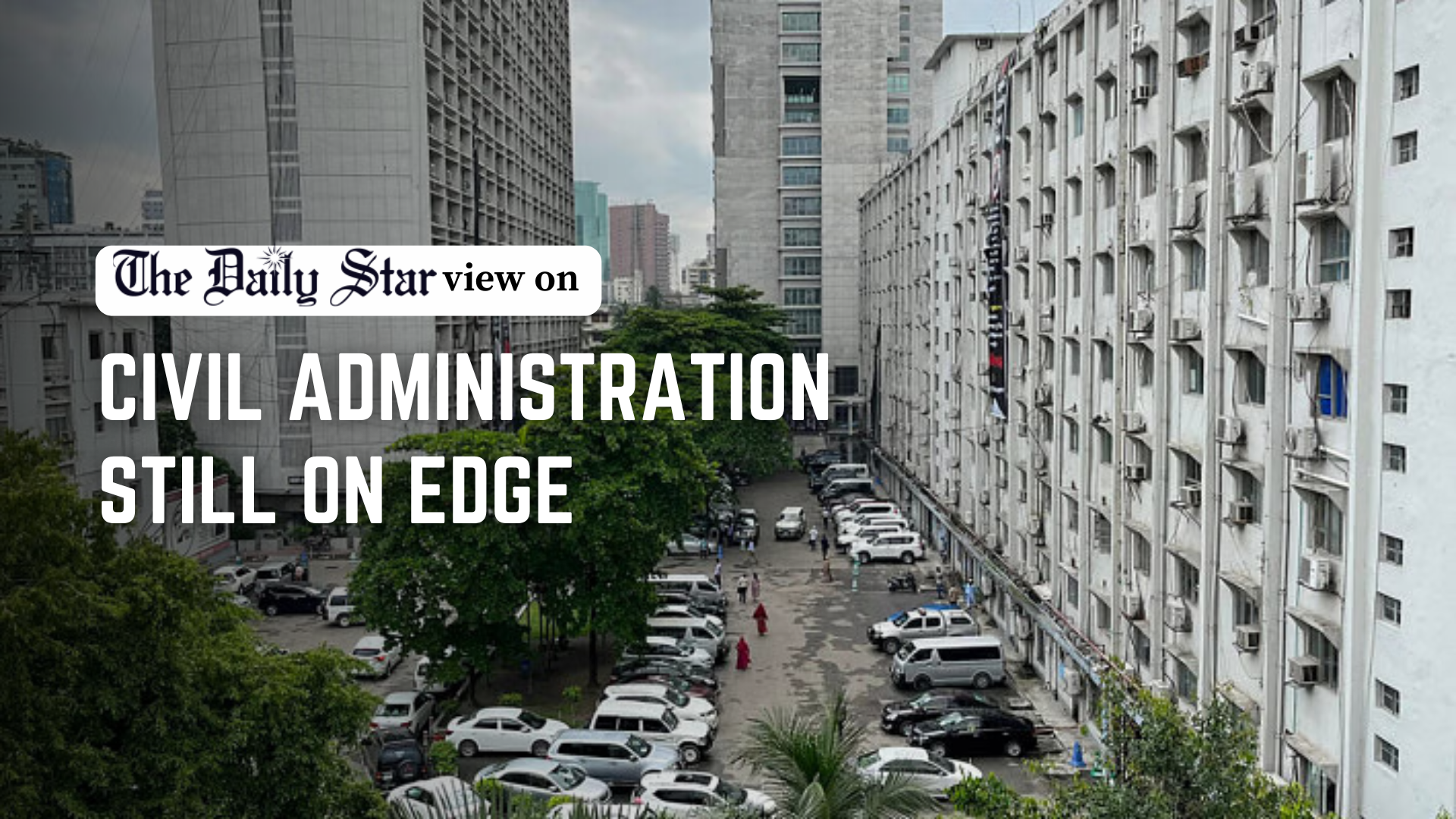Civil admin issues must be resolved fast

We are concerned that the interim government is still struggling to restore normalcy within the civil administration, despite being in power for over seven weeks. According to sources, the frequent turnovers of secretaries officials has been a major contributor to this disarray. Currently, out of the 55 ministries and divisions, 34 have secretaries appointed during the Awami League's tenure, 15 have secretaries appointed by the current administration, while six have no secretary presently. However, as the secretaries appointed during the AL era are suffering from uncertainty about their future, the functioning of their offices is being impacted. The situation around other top-level appointees from that period is having the same effect.
The protracted chaos has left the new administration quite hamstrung, delaying or disrupting government initiatives, policies and services. Previously, we saw how the absence of AL councillors and delays in replacing them with administrators caused major service breakdowns across various wards of Dhaka. We saw similar issues with regard to the appointment of deputy commissioners in 25 districts. These challenges reflect the consequences of the deep politicisation of the administration by the previous regime. For the smooth functioning of government and delivery of essential services, it was essential to resolve these issues as quickly as possible. The fact that the government has not yet been able to do so is a matter of concern.
As things stand, it is absolutely critical to restore order by clarifying the fate of top officials appointed during the previous regime. Decisions regarding whether they will stay on must be reached urgently. Another challenge the government needs to address is the controversy surrounding the appointment—or potential appointment—of new personnel in these positions. We have seen how those previously denied promotions are demanding they be given the positions, and how even retired officials are lobbying for appointments as secretaries. The government must carefully select the right individuals for these roles, prioritising public interests and keeping in mind that there may be people just trying to exploit the situation (regime change) to advance their own interests.
The delay in decision making due to confusion over existing personnel and new appointments cannot be allowed to continue. We urge the government to put more emphasis on sorting out the chaos and confusion hampering the performance of the civil administration. This must be done firmly but judiciously, so that no further incidents—such as the fight that erupted over the appointment of 59 deputy commissioners at the Secretariat on September 10—tarnish civil service again. Otherwise, the functioning of the government will continue to experience bumps along the way.



 For all latest news, follow The Daily Star's Google News channel.
For all latest news, follow The Daily Star's Google News channel. 
Comments